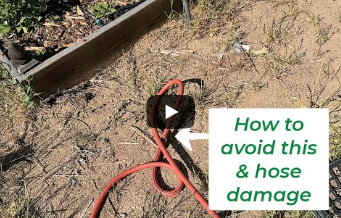Shielding Your Garden’s Jewels: Expert Strategies to Protect Tender Plants from Frost
Keep Jack Frost from ruining your garden
Introduction
Imagine waking up to a winter wonderland, only to find your garden’s tender plants succumbing to the harsh bite of frost. The struggle to protect these delicate green lives from freezing temperatures is a challenge for many gardeners. This comprehensive guide is your ally in the fight against frost, providing you with effective strategies to keep your plants thriving in the cold.
Why Protection is Essential
Frost can turn a thriving garden into a landscape of wilted and blackened plants overnight. It’s not just the ice crystals that pose a threat; the real danger lies in the damage caused to plant cells. When ice forms inside the plant tissue, it can rupture cell walls, leading to the loss of plants you’ve nurtured for months. Understanding this threat is the first step in protecting your green investments from unexpected cold snaps.
Identifying Tender Plants
Your first line of defense is knowing which plants in your garden are the most vulnerable. Tender plants, such as tropical perennials, succulents, and some annuals, lack the cellular structure to withstand freezing temperatures. Learning to recognize these susceptible varieties will enable you to prioritize your protection efforts when the forecast calls for frost.
Preventative Measures
Staying ahead of the weather is key. With a combination of keen observation and modern technology, you can anticipate frost events. Moreover, strategic planting can make a world of difference. Selecting the right location in your garden, such as areas that receive ample sunlight or are shielded from the wind, can provide natural protection against the cold.
Protective Techniques
There’s a whole arsenal of tools and techniques available to shield your plants from the cold. From simple methods like mulching with straw or leaves to sophisticated solutions like frost cloth and plant tents, each offers different levels of protection. Learn when to employ each technique and how to maximize its effectiveness to ensure your garden can weather the winter.
Special Section DIY Frost Protection Solutions
Innovation meets gardening with DIY frost protection. Items like old bed sheets, inverted buckets, and even Christmas lights can be repurposed to provide warmth and shelter for your plants. These solutions not only recycle materials but also add a touch of personal flair to your garden’s winter wardrobe.
Recovery After Frost
Sometimes, despite your best efforts, plants will suffer from frost exposure. When this happens, it’s important to assess the damage and take immediate action. Learn to recognize the signs of frost damage, understand which plants can be saved, and know the steps to revive them. With patience and care, you can often bring your plants back from the brink.
Conclusion
As the winter looms, remember that a little preparation goes a long way in protecting your tender plants from frost. By implementing the strategies discussed, you can give your plants a fighting chance against freezing temperatures. We hope this guide empowers you to extend the life of your garden into the colder months.
Did these tips help you save your frost-bitten botanicals? We’d love to hear about your experiences and any additional strategies you’ve used. Share your stories in the comments, and if you found this guide helpful, please pass it on to your fellow garden enthusiasts!
Some additional Links:










